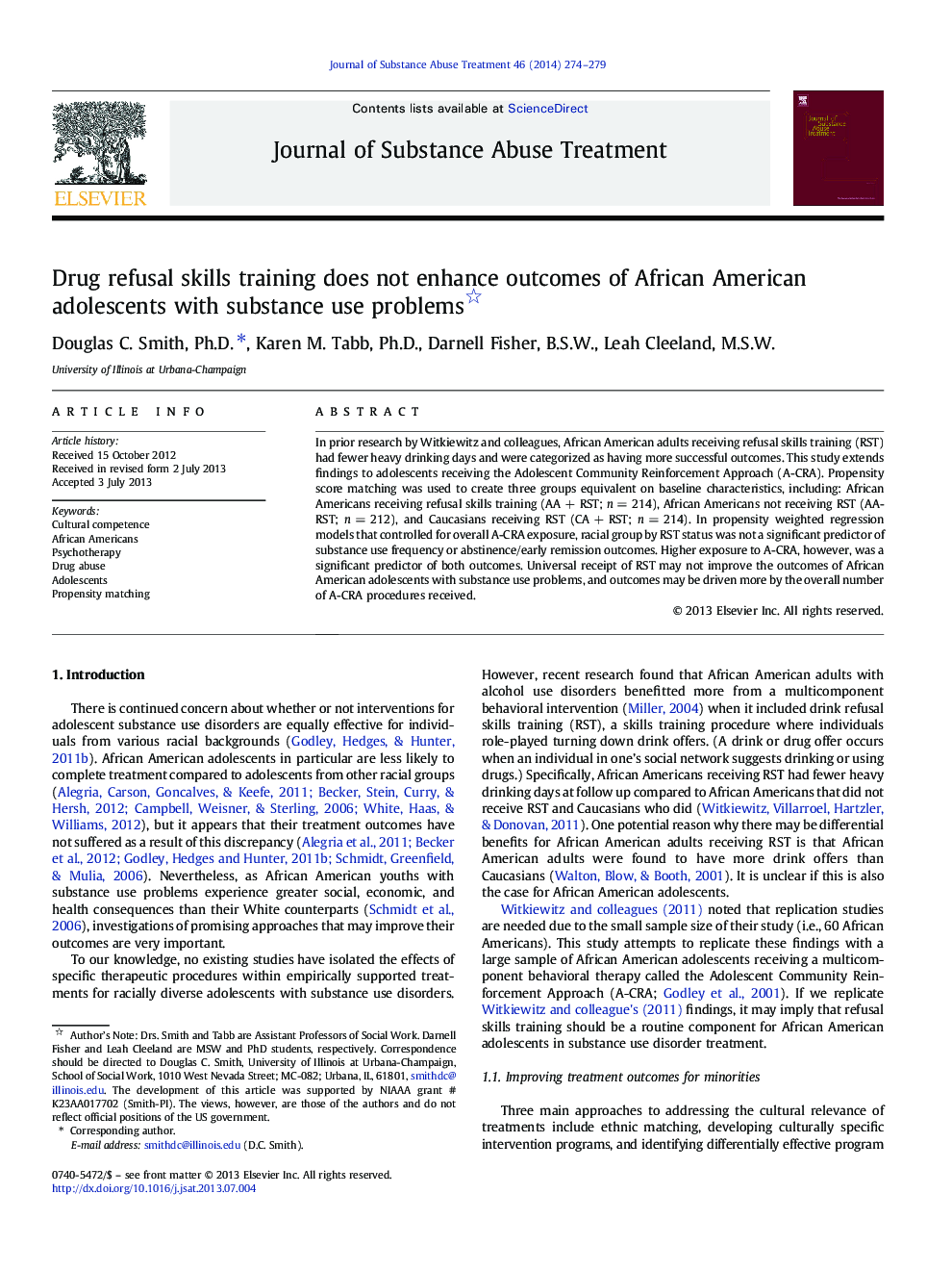| Article ID | Journal | Published Year | Pages | File Type |
|---|---|---|---|---|
| 329730 | Journal of Substance Abuse Treatment | 2014 | 6 Pages |
In prior research by Witkiewitz and colleagues, African American adults receiving refusal skills training (RST) had fewer heavy drinking days and were categorized as having more successful outcomes. This study extends findings to adolescents receiving the Adolescent Community Reinforcement Approach (A-CRA). Propensity score matching was used to create three groups equivalent on baseline characteristics, including: African Americans receiving refusal skills training (AA + RST; n = 214), African Americans not receiving RST (AA-RST; n = 212), and Caucasians receiving RST (CA + RST; n = 214). In propensity weighted regression models that controlled for overall A-CRA exposure, racial group by RST status was not a significant predictor of substance use frequency or abstinence/early remission outcomes. Higher exposure to A-CRA, however, was a significant predictor of both outcomes. Universal receipt of RST may not improve the outcomes of African American adolescents with substance use problems, and outcomes may be driven more by the overall number of A-CRA procedures received.
